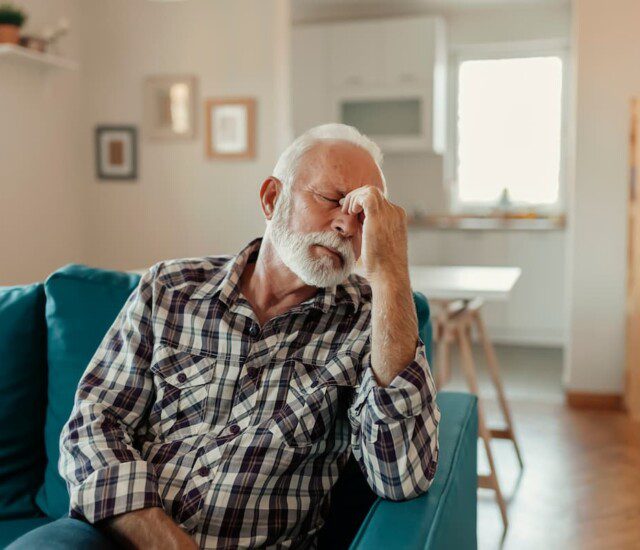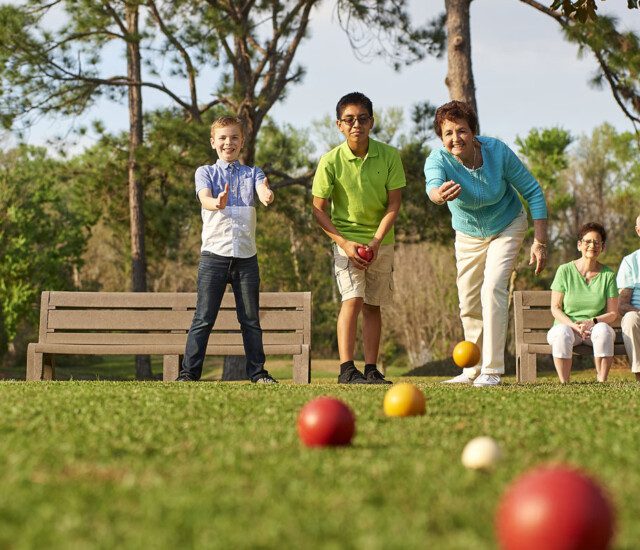Isolation is difficult for all of us, but it’s especially troubling for seniors. As we age, loneliness and depression can go hand in hand, which can impact our quality of life. The World Health Organization estimates that 7% of the world’s senior population struggles with depression, and this estimate doesn’t account for the number of undiagnosed cases. Symptoms of depression are sometimes hard to spot because many people are unaware of what to look for, or unsure of where and how to get support. Learn what depression is, depression symptoms, how it impacts seniors, and how to combat isolation and depression.
What is Depression?
We’ve all experienced negative feelings, but depression goes beyond feeling glum. Depression involves feelings of sadness, anxiety, or hopelessness that last for more than two weeks. This condition doesn’t just impact your emotions—being depressed can drastically alter the way you think and act.
Symptoms of Depression
There are many other depression symptoms to look for beyond long periods of sadness or apathy. These symptoms include:
- Loss of interest in activities or hobbies that you once enjoyed
- Irritability, frustration, or outbursts of anger
- Slower reaction time, which can lead to accidents or falls
- Unexplained physical pain, including headaches or back pain
- Insomnia or restlessness
- Forgetfulness or memory loss
- Low energy or fatigue
- Trouble focusing
- Appetite changes, including overeating or undereating
Seniors and Depression
Though depression is not specifically associated with aging, it is sometimes associated with other physical health conditions that are common for seniors. Depression is also connected to loneliness and isolation, which can be difficult for anyone, especially seniors. One in three seniors reported feeling isolated from others in the past year, according to a study done by the University of Michigan.
How Depression and Isolation Connect
Loneliness and isolation can have a negative impact on mental health. Humans are a social species, and our relationships are important to maintain our mental well-being. Studies have shown that high levels of loneliness are frequently associated with increased levels of depression. Isolation can be especially difficult when dealing with lifestyle changes, poor health, or the holidays, so it’s important to be aware of these times and look for solutions.
Ways to Overcome Isolation and Depression
If you’re looking to overcome your depression, then it’s important to talk to your friends, loved ones, or a medical professional. If you need immediate help, contact the National Alliance on Mental Health’s HelpLine to talk to a volunteer. However, if you’re looking to make changes to your lifestyle to combat your depression, here are a few methods to try.
Improving Physical Fitness
There’s a link between physical and mental health, which means that exercise can make a big difference if you’re feeling depressed. Working out releases endorphins, which are chemicals in your brain that make you feel good. There are also many opportunities to work out with a group, helping with loneliness. Search for fitness classes at your local community center, find a walking group, or enlist a partner to go to the gym with you. Be sure to speak with a medical professional before starting any new fitness regime.
Embracing the World Around You
If you’re experiencing depression symptoms, you may be inclined to stay at home and isolate, but this can sometimes make depression worse. Going out and appreciating the world around you can do wonders for your well-being. This can even have benefits where you’d least expect it, as exposure to sunlight can have a positive impact on your mental health. Consider enjoying your daily coffee on your porch, plan a picnic lunch at the park, or take a day trip to a local hidden gem.
Finding Community and Forging Friendships
Because isolation and depression are so closely linked, one of the best ways to improve your mental well-being is with social interaction. Being part of a community and having close friends can have positive impacts on your mental health. It allows you to connect with people who have similar interests, helps you embrace the world around you, and gives you someone to confide in.
If you’re looking to connect with others, here are some places we suggest:
- Find local clubs, classes, or hobby groups for activities like crafting, chess, or reading
- Volunteer for a cause you care about
- Look into group opportunities at places you frequently visit, such as a coffee shop, bookstore, garden center, or church
- Attend local events, such as art shows, farmer’s markets, or concerts
- Search for wellness activities at local community centers or gyms, like yoga, dance, or weight training
- Connect with your neighbors
- Consider community living
Find Community at Village on the Green
If you’re looking to connect with a community, then consider Village on the Green. Our premier senior living community, located near Orlando, Florida, has a variety of amenities to help you connect with others and maintain your physical and mental well-being. If you or a loved one want to learn more, our supportive team would love to help you schedule a tour. Contact us today to experience Village on the Green for yourself.


